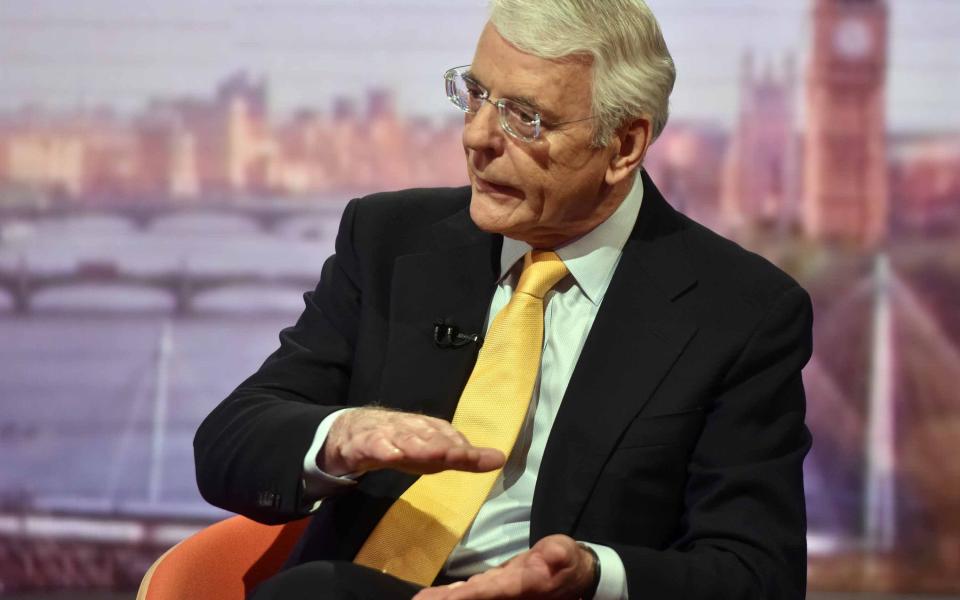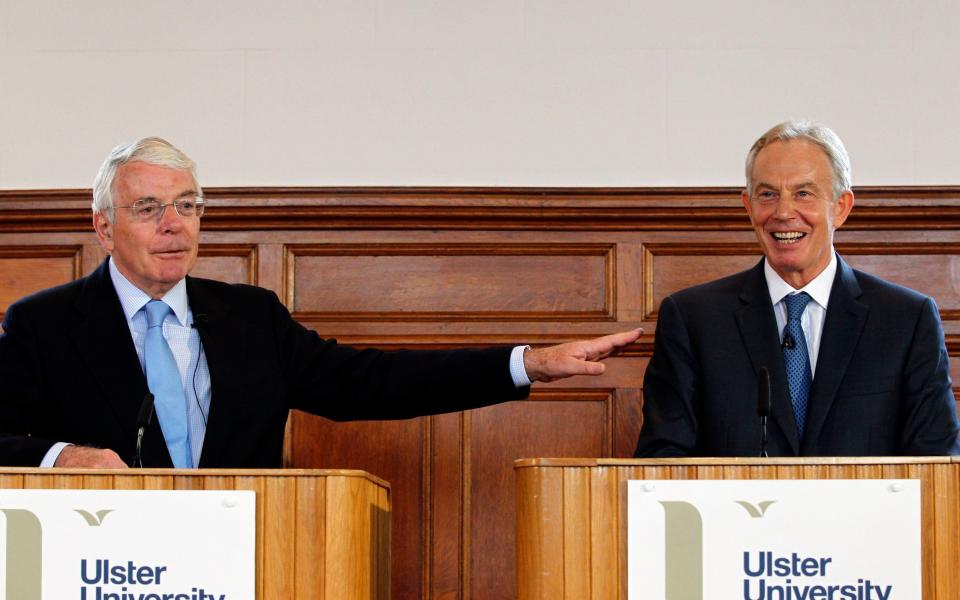Sir John Major launches extraordinary attack on Theresa May's government over Brexit
Sir John Major has launched an extraordinary attack on Theresa May's Government over Brexit and warned that leaving the EU could mean cutting the NHS and welfare state.
In his first intervention since the referendum, the former Conservative Prime Minister said that there will be a "price to be paid" if Britain decides to leave the European Union without securing a trade deal.
He said that a hard Brexit is a "high risk" strategy and warned Mrs May that she must not create "unreal and over-optimistic" expectations about Britain's future outside the European Union.
Last week Tony Blair, the former Labour Prime Minister who campaigned alongside Sir John during the EU referendum, urged voters to "rise up" against Brexit and said that voters have the "right to change their minds".
Sir John also criticised Donald Trump, describing the new US President as "less predictable, less reliable and less attuned to our free market and socially liberal instincts than any of his predecessors".
It comes as an alliance of Conservative, Labour and Liberal Democrat peers in the House of Lords seek to frustrate the Prime Minister's plans for Brexit.
A Downing Street source said: "The Government is determined to make a success of our departure from the European Union – and to move beyond the language of leave and remain to unite our country.
"The Prime Minister set out her twelve negotiating objectives for Brexit in January. We have a clear plan to get the best deal for the United Kingdom and are going to get on with the job of delivering it"
In a direct message to the Prime Minister, Sir John said that leaving the European Union without a trade deal and transforming Britain into a "deregulated, low-tax economy" would have "worrying implications" for the NHS.
He said: "To those who wish to see us adapt to a deregulated, low-tax enterprise economy – it is an attractive option, and wholly consistent with their philosophy.
"However, it has worrying implications for public services such as the NHS – and for the vulnerable who, I’m delighted to say, the Government has pledged to help …. and I know how personally committed the Prime Minister is to this.
"So there is a choice to be made, a price to be paid; we cannot move to a radical enterprise economy without moving away from a welfare state. Such a direction of policy, once understood by the public, would never command support. It would make all previous rows over social policy seem a minor distraction."
He said that Brexit-supporting MPs who assume that Europe will "concede all we wish for" without a price are "extraordinarily naive".
Speaking at Chatham House in London he said: "The Referendum was one of the most divisive votes in British history.
"It not only divided the four nations of our United Kingdom, but opened up divisions within those nations, within political parties, within neighbourhoods, within families, between age and income groups, and among friends.
"I have watched with growing concern as the British people have been led to expect a future that seems to be unreal and optimistic. Obstacles are brushed aside as of no consequence, whilst opportunities are inflated beyond any reasonable expectation of delivery."
On Britain's relationship with the US and Donald Trump he said: "Outside the European Union, we become far more dependent upon the United States and – for four and possibly eight years – upon a President less predictable, less reliable and less attuned to our free market and socially liberal instincts than any of his predecessors.
"If we disagree with American policy, we may weaken our ties. But if we support it slavishly, we become seen as an American echo – an invidious role for a nation that has broken free from Europe to become more independent."
Sir John said that Mrs May should inject "a little more charm and a lot less cheap rhetoric" into the Brexit negotiations". He said: "In my own experience, the most successful results are obtained when talks are conducted with goodwill: it is much easier to reach agreement with a friend than a quarrelsome neighbour.
"Behind the diplomatic civilities, the atmosphere is already sour. A little more charm, and a lot less cheap rhetoric, would do much to protect the UK's interests."
During the speech he called for ministers to be trusted to carry out the negotiations but insisted Parliament should not be treated as a "rubber stamp".
Brexit has "energised" anti-EU, anti-immigrant nationalism in other European countries, including France, Germany and Holland, he said.
"I caution everyone to be wary of this kind of populism," he added. "It seems to be a mixture of bigotry, prejudice and intolerance. "It scapegoats minorities. It is a poison in any political system - destroying civility and decency and understanding. Here in the UK we should give it short shrift, for it is not the people we are - nor the country we are."

 Yahoo News
Yahoo News 

